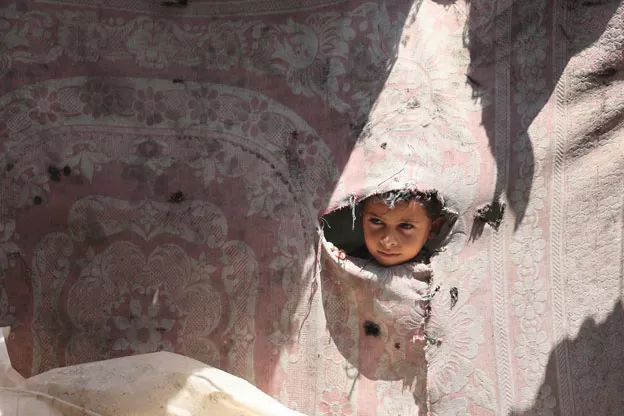On October 15, the World Health Organization (WHO) announced the beginning of the second round of Gaza’s polio vaccination campaign. This is a significant step towards eradicating the potentially deadly disease from the region. The Palestinian Ministry of Health, in partnership with WHO, the United Nations Children’s Fund (UNICEF), and the United Nations Relief and Works Agency for Palestine Refugees in the Near East (UNRWA), have worked tirelessly to ensure the success of this crucial campaign.
Polio is a highly infectious viral disease that mainly affects children under five years of age. It can cause paralysis, and in severe cases, it can be fatal. The first round of the polio vaccination campaign in Gaza was conducted in August, and it proved to be a massive success, with over 350,000 children receiving the life-saving vaccine. This second round aims to reach even more children, with a target of 380,000.
The Palestinian Ministry of Health has been the driving force behind this campaign, working closely with WHO and its partners to ensure its success. Dr. Majdi Dhair, the director of the ministry’s preventive medicine department, emphasized the importance of vaccinating every child in Gaza to protect them from polio. He also expressed his gratitude to WHO, UNICEF, and UNRWA for their unwavering support and cooperation.
The success of the first round of the polio vaccination campaign can be attributed to the tireless efforts of over 900 health workers and volunteers. These individuals went door-to-door, reaching out to families and ensuring that every child was vaccinated. Their dedication and hard work have been crucial in containing the spread of the virus and protecting the children of Gaza.
WHO, UNICEF, and UNRWA have been instrumental in providing financial and technical support for the campaign. They have also played a crucial role in raising awareness about the importance of vaccination and dispelling any misconceptions or fears surrounding it. Their contribution and support have been invaluable in ensuring the success of the campaign.
The second round of the polio vaccination campaign comes at a critical time, as the region is still grappling with the effects of the COVID-19 pandemic. The pandemic has put a strain on the health sector, making it even more challenging to carry out such a massive vaccination campaign. However, the Palestinian Ministry of Health, with the support of its partners, has risen to the challenge and is determined to protect the children of Gaza from polio.
The success of this campaign is a testament to the resilience and determination of the Palestinian people and their health sector. Despite the many challenges they face, they have remained committed to the health and well-being of their children. This is a shining example of what can be achieved when different organizations and individuals come together to work towards a common goal.
The polio vaccination campaign also highlights the importance of global solidarity and cooperation in fighting infectious diseases. The support provided by WHO, UNICEF, and UNRWA is a reminder that we must all work together to ensure that no child is left behind when it comes to life-saving vaccinations.
Moreover, this campaign is a crucial step towards achieving the Sustainable Development Goal of eradicating polio from the world. It serves as a reminder that, despite the current challenges, we must continue to work towards a healthier and more equitable world for all.
In conclusion, the second round of Gaza’s polio vaccination campaign is a testament to the resilience and determination of the Palestinian people and their partners. It is a crucial step towards protecting the children of Gaza from a potentially deadly disease and serves as a shining example of global solidarity and cooperation. Let us all continue to support and work towards a healthier future for all.



